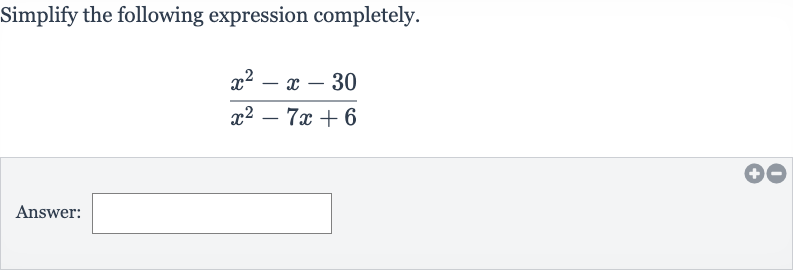Full solution
Q. Simplify the following expression completely.Answer:
- Factor Numerator: First, we need to factor both the numerator and the denominator of the expression.Let's start with the numerator: .We are looking for two numbers that multiply to and add up to (the coefficient of ).The numbers and satisfy these conditions because and .So we can factor the numerator as .
- Factor Denominator: Now, let's factor the denominator: . We are looking for two numbers that multiply to and add up to . The numbers and satisfy these conditions because and . So we can factor the denominator as .
- Cancel Common Factor: With both the numerator and denominator factored, the expression is now: . We can see that is a common factor in both the numerator and the denominator.
- Simplify Expression: We can cancel out the common factor from both the numerator and the denominator.This leaves us with .
- Final Simplified Form: The expression is already in its simplest form.There are no common factors left to cancel, and both the numerator and the denominator are in their simplest form.

